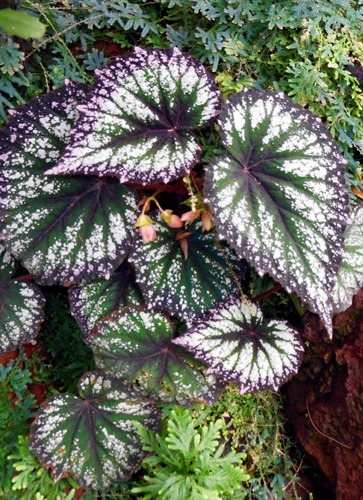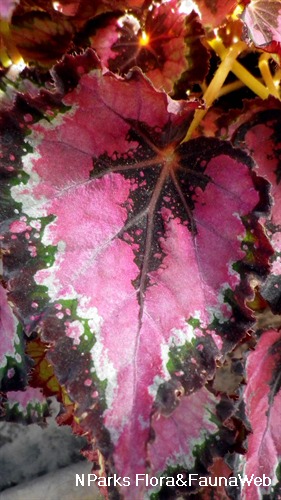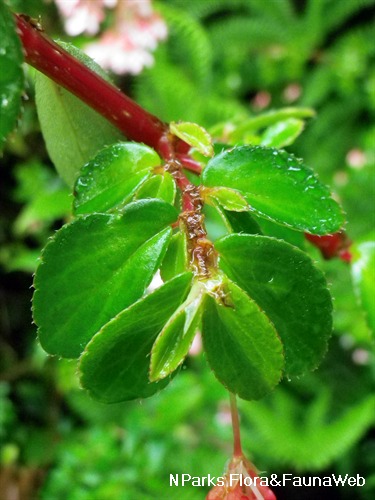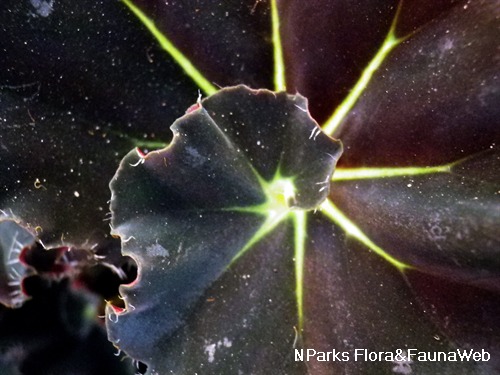
Name
Classifications and Characteristics
| Plant Growth Form | Herbaceous Plant |
|---|
Biogeography
| Native Distribution | Of horticultural origin - Semperflorens cultorum group hybrid |
|---|---|
| Preferred Climate Zone | Tropical, Sub-Tropical / Monsoonal |
Description and Ethnobotany
| Growth Form | Succulent herb to 40cm tall |
|---|---|
| Foliage | Leaves cordate , 4-6cm long by 3-5cm wide, fleshy, dull olive brown to dull green, under surface dull reddish brown. Petioles and stems pale green or tinged with red. |
| Flowers | Flowers rose pink. Stamens of male flowers modified into petals, giving the appearance of multi-petalled blooms within the flower. Female flowers remain as a completed flower (stigmas not modified) |
Landscaping Features
| Desirable Plant Features | Ornamental Flowers, Ornamental Foliage |
|---|---|
| Landscape Uses | Interiorscape/ Indoor Plant, Container Planting |
Plant Care and Propagation
| Light Preference | Semi-Shade |
|---|---|
| Water Preference | Lots of Water, Moderate Water, Occasional Misting |
| Rootzone Tolerance | Moist Soils, Fertile Loamy Soils, Low Humidity / Aircon |
| Planting Remarks | Tends to fare better under a cooler growing environment (<28'c). Under local conditions in Singapore, it is best grown in air conditioned environments that are exposed to very bright, indirect sunlight. The soil should be kept moist (but not wet or soggy as this tends to cause the plant to rot). Plants do not set seed and must be propagated via cuttings. |
| Pest(s) | Chewing Insects, Sucking Insects |
| Propagation Method | Stem Cutting |
Foliar
| Foliage Retention | Evergreen |
|---|---|
| Mature Foliage Colour(s) | Brown, Green, Red |
Floral (Angiosperm)
| Flower Colour(s) | Pink |
|---|---|
| Flower Texture(s) | Thin |
| Flower Grouping | Cluster / Inflorescence |
Image Repository
Others
| Master ID | 31707 |
|---|---|
| Species ID | 6106 |
| Flora Disclaimer | The information in this website has been compiled from reliable sources, such as reference works on medicinal plants. It is not a substitute for medical advice or treatment and NParks does not purport to provide any medical advice. Readers should always consult his/her physician before using or consuming a plant for medicinal purposes. |






